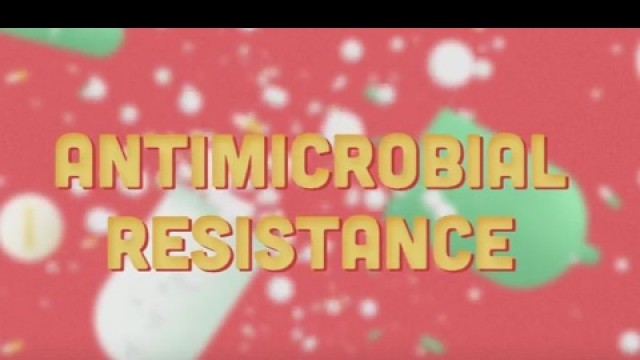

'Public health and sustainable food production are facing a serious global threat today: the increasing spread of Antimicrobial Resistance. What is Antimicrobial Resistance? Antimicrobial Resistance refers to bacteria, viruses, fungi and parasites that become resistant to anti-microbial drugs. How do microbes become resistant? Antimicrobials, such as antibiotics, are used to kill or stop microbes from growing in humans, animals and plants. Antimicrobial Resistance can occur naturally over time, but overuse and misuse of antimicrobial drugs in humans and in agriculture speed up the development of Antimicrobial Resistance. As a result, the medicines we use to treat common infections are becoming less and less powerful or even useless. How does Antimicrobial Resistance spread? Microbes that are resistant to anti-microbials can be found in people, animals, food, water and the environment. Antimicrobial resistant microbes can spread through the food chain and the environment; between people and animals; or from person to person. The impact of Antimicrobial Resistance. Antimicrobial Resistance affects: 1. Human health Because drugs become less effective leading to more severe illnesses, with an estimated 700.000 human deaths each year. 2. Food supply and agriculture Because production losses lead to food insecurity, and because misuse results in unsafe or contaminated foods. 3. and Antimicrobial Resistance affects the environment, with soil and water polluted with drug residues and resistant microbes. What is needed? A global threat requires a global response bringing together all people and sectors to reduce the use of antimicrobials in humans and animals and to use them selectively, prudently and responsibly. A global threat requires a \"One Health\" approach with all sectors working together: 1. Veterinarians Prescribing medicines responsibly and only after a proper diagnosis; and advising whenever possible alternatives to antimicrobials, like vaccines. 2. Farmers Through common and good farming practices; and a responsible use of quality antimicrobials, only on professional advice. 3. Food producers Producing, handling and marketing food under hygienic conditions, in a proper and environmentally friendly way. From Global commitment to Local action. The Food and Agriculture Organization of the United Nations (FAO) supports National Action Plans involving all sectors to prevent the development of antimicrobial resistance by: 1. Raising awareness 2. Promoting best practices in food and agriculture, including aquaculture 3. Developing capacity for surveillance and monitoring 4. and always making sure that rules for the safe use are respected. If we use antimicrobials in agriculture responsibly we support sustainable food security and save lives. http://www.fao.org/antimicrobial-resistance/en/ Subscribe! http://www.youtube.com/subscription_center?add_user=FAOoftheUN Follow #UNFAO on social media! * Facebook - https://www.facebook.com/UNFAO * Google+ - https://plus.google.com/+UNFAO * Instagram - https://instagram.com/unfao/ * LinkedIn - https://www.linkedin.com/company/fao * Twitter - http://www.twitter.com/faoknowledge © FAO: http://www.fao.org'
Tags: Health , resistance , VIRUS , drug , united nations , antibiotics , Farmers , AMR , fao , unfao , Microbes , veterinarians , microbial , food and agriculture organization of the united nations , fao.org , food producers , Antimicrobial resistance
See also:

















comments